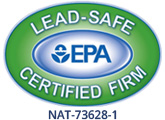How to Protect Your Home from Water Damage
 When you return home after a long day, the last thing you want to see is a large puddle on the floor or water dripping from the ceiling. Yet if you find yourself in this situation, you might wonder how this happened and if you could have done anything to prevent it.
When you return home after a long day, the last thing you want to see is a large puddle on the floor or water dripping from the ceiling. Yet if you find yourself in this situation, you might wonder how this happened and if you could have done anything to prevent it.
Understanding Water Damage
No matter where you live, water damage often comes from one of four sources: Plumbing, home design, weather-related incidents or flooding. Collectively, these factors are behind a significant number of insurance claims each year. In fact, water-related damage from plumbing and weather are the second-largest source of homeowner’s claims.
In terms of plumbing, anything with a water connection can be the source of a leak. This includes appliances like dishwashers, washing machines and water heaters. Leaks may also come from a sink, shower, toilet or any of the pipes routed through your home. Aside from wear and detachment, pipes can freeze and burst, leading to water leaks and a potential sewage backup.
Your home’s design may also be responsible for leaks and subsequent damage, including how water flows from the roof, any cracks or existing damage, and the gutter system. A lawn that doesn’t drain well and causes water to pool around the foundation may play an additional role.
Beyond your control, Mother Nature may exert its force, causing local bodies of water to overflow. Considering all these sources, you are advised to take the following precautions to lessen potential water damage.
Check Your Plumbing System and Related Fixtures
Certain areas and plumbing features are more prone to leaks. To reduce the likelihood of damage:
- Routinely check the hoses running to your appliances for cracks or leaks.
- Check around the shower and tubs, ensuring seals are strong and watertight.
- Stay in or around your home while using the dishwasher or washing machine.
- Install a backwater valve to lessen chances of a sewage backup in your home.
- Look along the exterior and seal any areas where pipes pass to the outside.
- Insulate pipes that pass along the exterior or are located in a more exposed area, like the basement, attic or crawlspace.
- During the winter months, keep kitchen and cabinet doors open to allow better heat circulation.
- If you plan to be away from home for several days, turn off the water supply.
Know How to Shut Off the Water Main
To lessen potential damage, know where the water main is located and how to shut it off in the event a pipe bursts or you spot a leak. It’s often located where water first enters your home, on the perimeter.
Don’t Forget About the Basement
Signs of a water-damaged foundation will appear in your basement, including cracks, mold and puddles after a storm. In this instance, you’ll want to address the foundation’s quality and have the basement waterproofed. Also be sure to remediate any mold that has started to grow.
Pay Attention to Drainage
When it rains, where does the water flow? If it travels toward your home, there’s a chance it will sit around the foundation before being absorbed by the soil. However, this doesn’t mean the water is gone. Instead, the ground becomes saturated and can cause cracks to form in your foundation. Considering this:
- Think about having the angle or incline of your property updated if the water doesn’t drain away.
- Clean any debris from the downspouts and gutters, so the water doesn’t flow from your roof to the foundation.
- Have the sprinklers routinely cleaned and drain any water before winter to prevent frozen pipes.
Install an Alarm System
Add multiple monitoring systems to detect leaks and other possible sources of water damage, including:
- A leak alarm, which monitors a specific area and triggers an alert once a leak is sensed.
- A water flow monitoring system, which attaches to the water main and can halt the flow if an above average amount is detected.
- An emergency pressure valve for your plumbing system, which can decrease pressure and lessen chances of a burst pipe.
Think About Storage
Especially if a flood hits your area, how you store items in your home can reduce potential damage:
- Rather than use shelves, store items in the basement or near plumbing in waterproof containers.
- Keep electronics and anything valuable away from where water could enter.
- Avoid keeping items on the floor, instead elevating them off the ground.
Does your home show signs of water damage? Reach out to the professionals at MJ Fahy & Sons to identify the source within your plumbing. To learn more or request service, contact us today.




